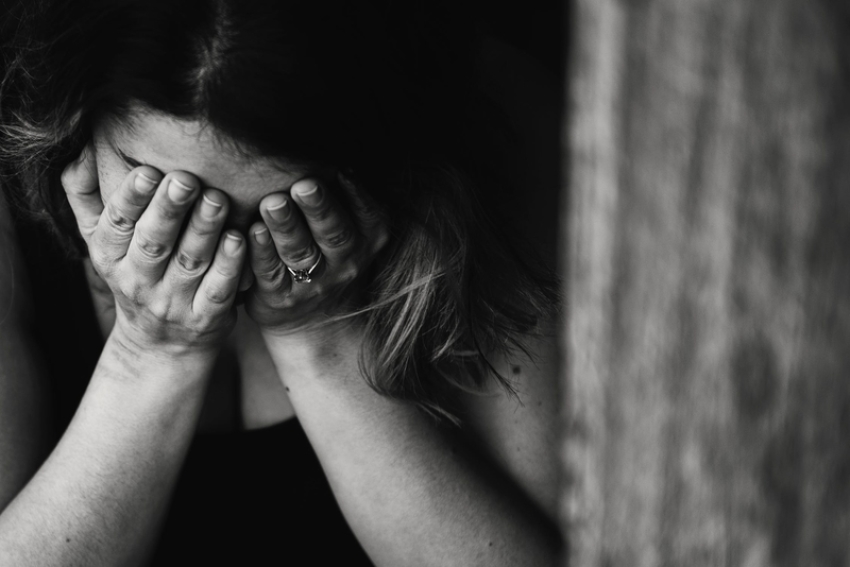Mental health crisis: Depression, suicide rates among American youth skyrocketing

American youth are facing a mental health crisis of tremendous proportions, new data shows, as rates of suicide and depression have skyrocketed in the past decade.
In an March 14 essay on The Conversation, San Diego State University professor of psychology professor Jean Twenge explained that new analysis of government research, specifically the National Survey on Drug Use and Health, reveal a "staggering" epidemic of mental health problems.
Among the most notable statistics documented are that the suicide rate among 18- to 19-year-olds has increased 56 percent in the years 2008 to 2017. In that same span of time, anxiety and hopelessness among 18- to 25-year-olds has risen 71 percent. Depression among 20- and 21-year-olds has more than doubled from 2009 to 2017. Among 16- and 17-year-olds depression grew 69 percent.
The mental health issues were particularly dire for young women and girls. By 2017, the data reveals that approximately 20 percent of 12- to 17-year-old girls had experienced "major depression" in the previous year.
The survey data was obtained from over 600,000 American respondents.
"The large increases in mental health issues in the National Survey on Drug Use and Health appeared almost exclusively among teens and young adults, with less change among Americans ages 26 and over," Twenge noted.
"Even after statistically controlling for the influences of age and year, we found that depression, distress and suicidal thoughts were much higher among those born in the mid- to late-1990s, the generation I call iGen," she said, referring to younger generations of youth who are tethered to their iphones and digital devices.
Twenge is the author of iGen: Why Today's Super-Connected Kids Are Growing Up Less Rebellious, More Tolerant, Less Happy — and Completely Unprepared for Adulthood — and What That Means for the Rest of Us.
Some may attribute the rise in mental health issues among young people to recent economic turbulence and the loss of jobs, which are often causes of mental anguish, but the psychology professor believes that is not the case since U.S. economy was growing during the same years mental health problems were also rising dramatically. Nor does she think academic pressures are to blame since teens today spend less time on homework on average than teens during the 1990s.
"But there was one societal shift over the past decade that influenced the lives of today’s teens and young adults more than any other generation: the spread of smartphones and digital media like social media, texting and gaming," Twenge said, offering her diagnosis.
This has disproportionately affected their lives because the technology has shaped their social behaviors and ordered their everyday activities in a way unknown to previous generations who may use it, she explained
"No matter the cause, the rise in mental health issues among teens and young adults deserves attention, not a dismissal as a 'myth.' With more young people suffering – including more attempting suicide and more taking their own lives – the mental health crisis among American young people can no longer be ignored."
As The Christian Post has previously reported, she is not alone in her belief that smartphones are fueling a mental health crisis among the young and are urging parents to reconsider how much access they give their kids to smartphones.
Brook Shannon's campaign, Wait Until 8th, urges parents to delay giving their children a smartphone at least until the eighth grade. A mom of three, she has already talked about tough topics like suicide, sex trafficking, and porn, and what to do in situations when these horrors emerge from pixilated screens.
"When you take out all that awkwardness and you dive right in, and you talk to your kids about that, they're going to consider you an authority on that, and they're going to come to you when they have a question," she said at a January panel at the American Enterprise Institute on the harms of digital culture.
Her site notes that smartphones impair sleep, interfere with relationships, increase risk for anxiety and depression, puts children at risk for cyberbullying, and that tech executives ban them for their own children.
Danny Huerta, a licensed clinical social worker and vice president of parenting and youth at Focus on the Family in Colorado Springs, Colorado, told CP in a 2017 interview that so many young people are "seeking authenticity and our brain does not register online things as authentic, and there are a lot of comparisons that take place" within the human psyche.
Such constant mental comparisons "create a sense of depression, anxiety, and stress," he said.



























